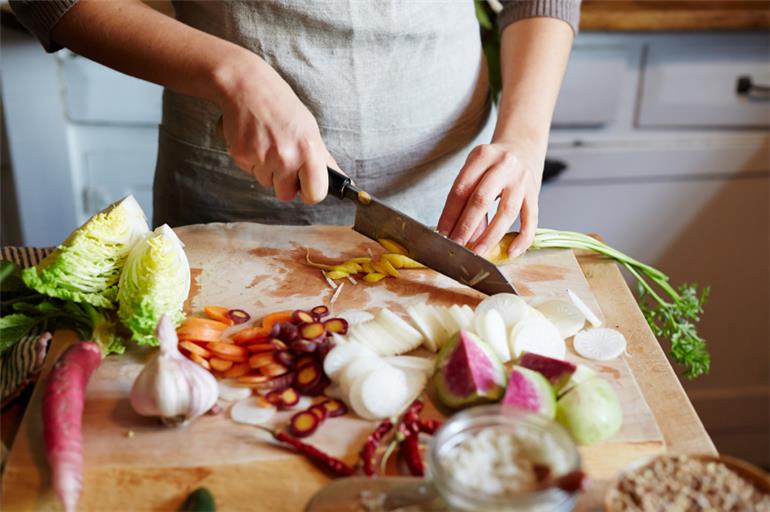For World Health Day 2015, the World Health Organization if focusing on keeping food safe from farm to plate. Every year millions of people fall ill due to contaminated food. For those of us going through cancer treatment food safety is especially important. We are the final step in food safety. From shopping to storing, the more you know the safer you can be. Here are some of our best practices food safety tips & guidelines. And always follow advice from your registered dietician and oncologist regarding foods you can and cannot eat.
Shopping:
Always check "expiration" and "best if used by" dates.
Packaging should not be damaged or compromised in any way.
If your immune system is compromised avoid the bulk section, buffets, salad bars, and the deli counter. These can be great as a cost-saving measure when you're well, but it's best to skip them otherwise.
Pick up frozen and cold food last while you're at the store and consider buying a soft cooler to keep them cold during transportation.
Make sure all fruits and vegetables you buy are free of mold and damage.
Keep raw foods separate from other foods in your cart.
Make sure to wrap uncooked meats in their own separate plastic bag to keep them from contaminating fresh ingredients.
Preparing:
Wash your hands thoroughly before handling food.
If you have scrapes or cuts on your hands cover them before handling food.
Use clean paper towels to dry hands and any foods, kitchen towels can transfer bacteria.
Regularly disinfect your working area.
Replace or boil sponges very often.
Always wash your hands after working with raw meats
Always use separate cutting boards and utensils for raw meats and fish to prevent cross contamination with other foods like fresh fruits, vegetables, and bread.
Wash all fruits and vegetables before cooking or eating them, even those that have an outer peel or rind. You need to wash off all the bacteria before cutting into them as this may transfer bacteria to the fleshy part of the fruit.
If your immune system is compromised, wash all pre-packaged, pre-washed salads.
Wash all cans or bottles before you open them to prevent bacteria from entering the safe food.
Storing:
Make sure to put all cold items in the fridge or freezer as soon as you get home.
Keep your refrigerator at 40° F and your freezer at 0° F
Never over-crowd your fridge or freezer. Air needs to circulate to ensure cold temperatures throughout your fridge.
Keep food in the fridge covered.
To avoid cross contamination, never store raw meat or fish above pre-cooked or prepared foods.
Once a pre-cooked food is opened it’s best to eat it as soon as possible
Don’t take risks when your immune system is low. If it’s smelly or you don’t remember when you got it. Toss it out!
Store eggs in the carton in the body of the fridge, not in the door which is warmer. Milk also keeps better inside the fridge.
Store nuts, nut butters and whole grain flours in the fridge to prevent their oils turning rancid.
Clean your refrigerator regularly to recude the risk of transmitting bacteria.
Store other food in a cool dry place.
Never put hot food directly into the fridge, it can raise the overall temperature of the fridge to an unsafe degree.
Cooking:
Make sure to wash all fruits, vegetables, and herbs thoroughly. For those who cannot eat any raw foods, you can still cook fruits and eat them as delicious compotes or in other satisfying ways.
Thaw and marinate food in the refrigerator, not on the counter.
Cook meat and eggs thoroughly – click here for safe cooking temperatures for different types of meat.
If you're on the neutropenic diet you can still use fresh herbs. If a recipe calls for the addition of black pepper or fresh herbs at the end, simply stir in the pepper or herbs and cook for 3 or so minutes to kill any microbes.
Post any food safety tips you'd like included and let us know if you practice these in your home.
